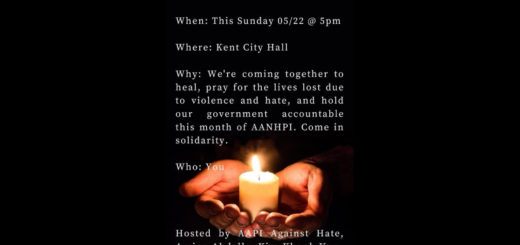2012 Golden Circle Awardee: Dr. Paul Bock
“Stand-up. Never kow-tow. Be proud that you are Asian Americans. Be proud of your Mom and Dad. Be proud of your ancient heritage. Remember the sacrifices that have put you here. Each of us stands on the shoulder of the generation before us. Your heritage sustains you.”
-Paul Bock, speech to East Coast Asian Student Union (ECASU) students, February 1994
Paul Bock proudly tells people that he is the descendant of 23 generations of Chinese peasants. His parents came to the United States from Guangdong Province. Bock grew up in a blue-collar, white neighborhood of Baltimore during the Great Depression. His parents owned a Chinese Hand Laundry in Baltimore. He was often confronted with bullies and bigotry. Despite Bock’s academic and professional achievements, attending MIT (BSCE), Johns Hopkins University (MSCE, Ph.D) and serving in the US Navy as an officer aviator, he had issues with his racial identity. In the Navy, he had a flight instructor physically harass him and call him racist names on the intercom. He grudgingly tolerated it and did not overtly challenge the racism around him. As Bock put it, his father had always instructed Bock and his siblings to “work, work, work, study, study, study, get into MIT.”
During the war years, he married Phoebe Ten Yin Ho of Hawaii (they would eventually have 4 kids and 5 grandchildren) and became a professor and, eventually, Professor Emeritus of Hydrology and Water Resources at the University of Connecticut. Professionally, he earned many accolades, including serving as Chairman of the Committee on Space Hydrology of the American Geophysical Union and he received a contract for NASA to study ways the space shuttles might be used to monitor the earth’s water resources. Bock had over 40 years of experience and over 60 publications in his field. He also served on various scientific commissions including UNESCO, World Health Organization, NOAA, USGS and US Army Corp of Engineers.
Although he had served as President of the Asian American Council of Connecticut, his advocacy for Asian American issues was triggered in 1988. At this time, eight Asian American students riding the bus to an off campus dance were harassed by white University of Connecticut students who spewed out tobacco juice and alcohol at them. Outraged, the then 62-year-old professor protested against racism at U Conn in an 8-day fast alone in a tent on campus. His protest gained national attention and forever changed U Conn. His 8-day fast led to nearly two dozen changes, including the first Asian faculty and staff association, stronger anti-harassment policies, diversity training for resident assistants, a dean of
international affairs and, U Conn’s first Asian-American courses and the creation of Asian American Cultural Center on
campus. This incident also led University of Connecticut to launch its first Asian American radio program, the Asian American Forum. Bock and his wife, Phoebe (whom he often described as even more progressive than him) discussed topics such as Affirmative Action and discrimination in college admission policies and health programs, as well as Asian American culture, history, life, and stereotypes.
On April of 1990, he filed a class action complaint on behalf of Asian Americans and Native Americans with the U.S. Department of Education’s Office of Civil Rights (OCR). On May 7, 1993 OCR found U Conn in violation of Title VI of the Civil Rights Act of 1964 by excluding Asian Americans and Native Americans from its Minority Advancement Program (MAP). U Conn agreed to include Asian Americans and Native Americans in MAP and paid $60,000 annually to the colleges for programs for Asian Americans and Native Americans. In 1996, Glenn Beck publicly apologized on the radio and wrote a letter to Bock after offending the Chinese community. Beck and KC101 radio partner Pat Grey had decided to prank call a Chinese restaurant owner, pretending to have interest in buying the business while speaking in a “mock-Chinese” accent. By taking action, Bock and other members of the community shattered another Asian American
stereotype of being silent and apolitical.
By the summer of 1996, the Bock family moved to Seattle to join their daughter Paula and her husband Tao. In Seattle, Bock’s activism continued into his 80s. Bock joined OCA, participated in a 1997 University of Washington student protest for Ethnic Studies, 1998 ObaChine Pan-Asian Restaurant protest and the 2002 Abercrombie and Fitch protest. All the while, he biked from his Ballard home to the University of Washington to take Asian American Studies courses. As
Bock once stated, “Deconstruct white male Eurocentricism… Construct the reality of an inclusive America.”







